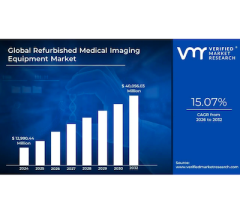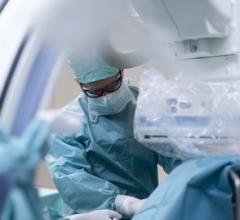May 13, 2015 — A new independent evaluation report from the Department of Health and Human Services showed that the Pioneer Accountable Care Organization (ACO) payment model has generated substantial savings to Medicare in just two years. Additionally, the independent Office of the Actuary in the Centers for Medicare & Medicaid Services (CMS) has certified that this patient care model is the first to meet the stringent criteria for expansion to a larger population of Medicare beneficiaries.
The Pioneer ACO model was created by the Affordable Care Act as a pilot project. The independent evaluation report for CMS found that the model generated more than $384 million in savings to Medicare over its first two years — an average of approximately $300 per participating beneficiary per year — while continuing to deliver high-quality patient care. The Actuary’s certification that expansion of Pioneer ACOs would reduce net Medicare spending means that HHS will consider ways to scale the Pioneer ACO Model into other Medicare programs.
“This is a crucial milestone in our efforts to build a healthcare system that delivers better care, spends our health care dollars more wisely, and results in healthier people,” said Burwell. “The Affordable Care Act gave us powerful new tools to test better ways to improve patient care and keep communities healthier. The Pioneer ACO Model has demonstrated that patients can get high-quality and coordinated care at the right time, and we can generate savings for Medicare and the healthcare system at large.”
One of the first payment models launched by CMS, the Pioneer ACO model gives experienced healthcare organizations accountability for quality and cost outcomes for their Medicare patients. Doctors and hospitals who form Pioneer ACOs can share in savings generated for Medicare if they work to coordinate patient care, keep patients healthy and meet certain quality performance standards, or they may be required to pay a share of any losses generated.
Currently, the model is serving more than 600,000 Medicare beneficiaries. According to the report, compared to their counterparts in regular fee-for-service or Medicare Advantage plans, Medicare beneficiaries who are in Pioneer ACOs, on average:
- Report more timely care and better communication with their providers;
- Use inpatient hospital services less and have fewer tests and procedures; and
- Have more follow-up visits from their providers after hospital discharge.
Pioneer ACOs are part of the framework established by the Affordable Care Act to move the U.S. healthcare system toward one that rewards doctors based on the quality, not quantity, of care they give patients. HHS earlier in 2015 announced an ambitious goal of tying 30 percent of Medicare payments to quality and value through alternative payment models by 2016 and 50 percent of payments by 2018. More than 3,600 payers, providers, employers, patients, states, consumer groups, consumers and other partners have registered to participate in the Health Care Payment Learning and Action Network, which was launched to help the entire healthcare system reach these goals.
Pioneer ACOs generated Medicare savings of $279.7 million in 2012 and $104.5 million in 2013. To date, actuarial analyses show that ACOs in the Pioneer ACO Model and the Medicare Shared Savings Program have generated more than $417 million in total program savings for Medicare. The primary analyses in the evaluation are also reported in an article published in the Journal of the American Medical Association.
For more information: www.cms.gov


 February 17, 2026
February 17, 2026 









